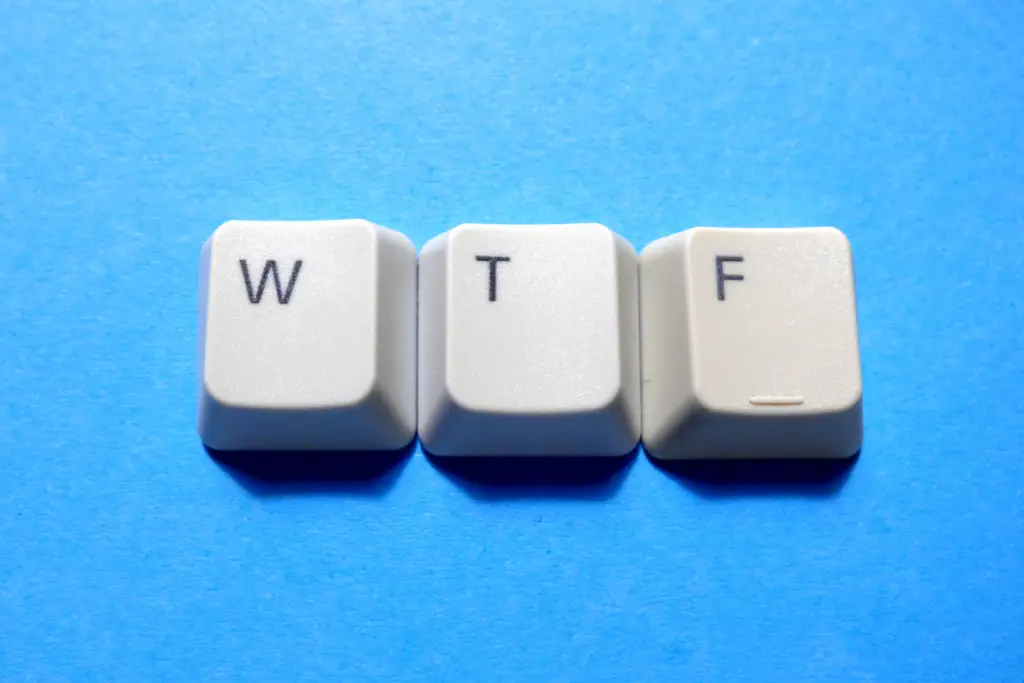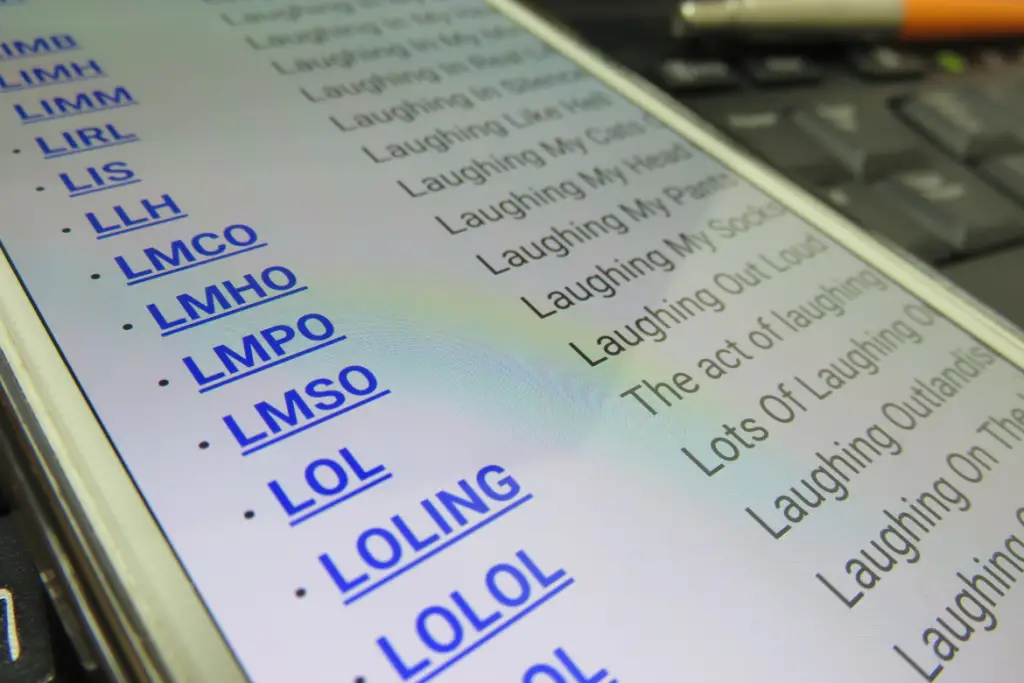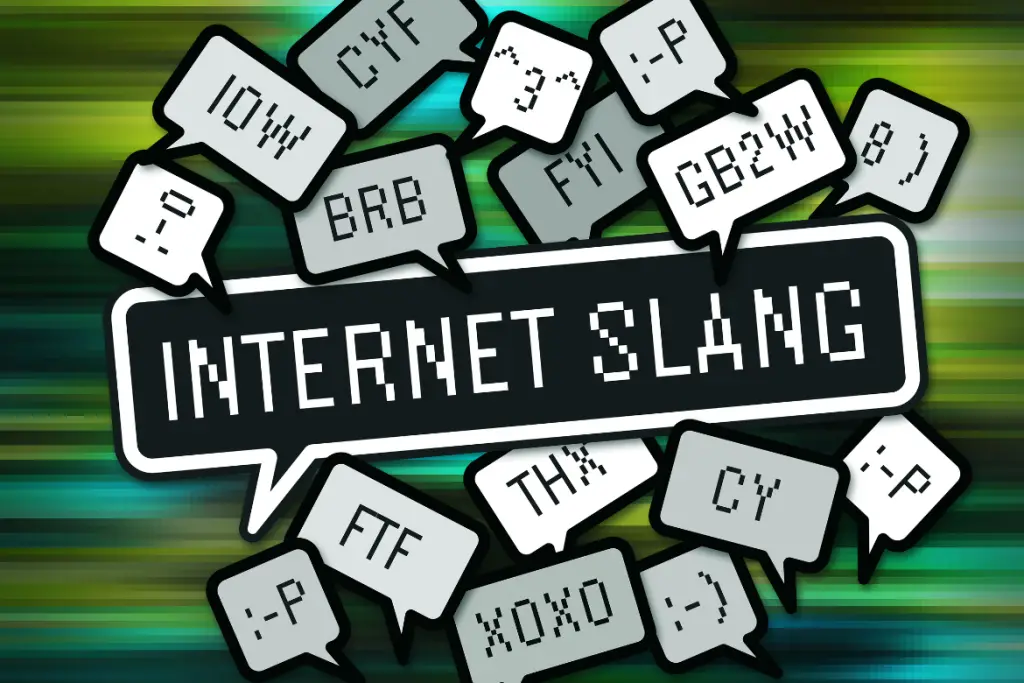Introduction
Ah, the internet – a breeding ground for innovation, connection, and, you guessed it, a whole new way of speaking. Imagine explaining “LOL” or “BRB” to someone 50 years ago; they’d think you were decoding secret spy messages. But here we are, and internet slang is not just reserved for screen use anymore. It’s popping into our daily dialogues, often accompanied by a smirk or a knowing glance. This article isn’t a spy decoder, but it will unlock the reasons behind the invasion of internet slang into our spoken language and how it’s flipping the script on communication norms. So, buckle up, language enthusiasts – we’re diving deep into the rabbit hole of internet-born expressions!

Internet Slang Invades Everyday Language
It started with acronyms seeping into our texts, making communication snappier. But somewhere along the way, internet slang vaulted from digital screens into the realm of spoken word. Now, it’s not uncommon to hear someone say “OMG” instead of “Oh my gosh” or use “ghosting” to describe a friend’s sudden, mysterious absence. These words are more than just convenient; they’re a nod to a globally shared understanding, an in-joke among netizens worldwide.
But it’s not all fun and memes; this shift is also a cultural semaphore. When a politician tweets “ICYMI” (in case you missed it), it signals a savviness, a way to connect with a digitally fluent audience. Or when a CEO uses “disruptor” during a keynote speech, it’s internet slang, marking recognition of a new era of innovation and change.
This invasion of everyday language by online jargon is rewriting social norms, one LOL at a time. It’s tearing down the formalities of language, making interactions more candid, relatable, and sometimes, just a bit more confusing for those not in the know. So, how did these terms ensnare our spoken language, and what does it mean for the future of communication? Keep reading, fellow slang-sleuths; the plot thickens.

The Psychological and Cultural Draw of Internet Slang
Diving into the psyche behind the rampant spread of internet slang, it’s clear we’re not just talking about a bunch of catchy phrases; we’re talking about a cultural revolution. For the uninitiated, throwing a casual “FOMO” or “savage” into conversation might seem trivial, but for the digital natives, it’s a badge of belonging. It’s this blend of psychology and cultural identity that cements internet slang firmly within our daily lexicon.
Internet slang acts as a digital handshake of sorts. When you slide a “BTW” into a chat, you’re not just shortening a sentence; you’re acknowledging a shared digital experience. This shorthand isn’t lazy – it’s efficient, it’s coded language signifying membership in a worldwide club. The more it’s used in everyday speech, the more we reinforce our collective identity, embracing a global culture that transcends traditional borders.
But there’s another layer – the impact of these terms on our social psyche. Internet slang is rebellious, often cheeky, and it breaks the constraints of formal language, offering a new way to express humor, sarcasm, or understated wit. This linguistic phenomenon taps into our intrinsic desire for social bonding, allowing us to navigate complex social situations, showing empathy, solidarity, or shared enjoyment in a fast-paced digital world.
The Ripple Effect
Global and Societal Impacts: Language has always evolved, but internet slang is the turbo engine pushing it along at breakneck speed. As these colloquialisms spread like digital wildfire, we see a global community building, speaking a universal dialect. “Epic fail” knows no geographic boundary, and “troll” is not confined by any border. We’re witnessing the birth of a global village voice.
However, it’s not without its hiccups. Generational divides become apparent when a grandparent wonders why their grandchild just referred to something cool as “lit,” possibly pondering why something interesting has anything to do with lighting. There’s a societal shift here, creating both connections and divisions, often along generational or traditional lines.
Moreover, the impact on professional and academic scenarios is also under the microscope. There’s concern that the informality of internet slang might erode the sanctity of formal writing and speech. Yet, simultaneously, it’s fostering more dynamic, succinct, and interactive modes of communication within various societal sectors.
This ripple effect is multifaceted, influencing social dynamics, education, professional environments, and even policy-making. As we decode these impacts, one can’t help but wonder: are we steering this ship, or are we passengers on a vessel charted by our own digital words?
Embracing the Linguistic Shift
Future of Communication: As we ride this wave of digital lingo, it’s essential to grab our crystal balls and peer into the future – because, like it or not, internet slang is here to stay, and it’s not just changing language; it’s revolutionizing communication. Picture a world where brevity is king. “TL;DR” (too long; didn’t read) is no longer rude; it’s practical feedback, a call for concise, straight-to-the-point expression. As digital natives become leaders, they carry this linguistic evolution forward, valuing quick, impactful bursts of communication that started in the depths of online forums.
But it’s not just about being brief; it’s about resonating emotionally and bonding over shared digital experiences. The language of the future will likely continue to favor expressions that offer emotional and cultural resonance, providing a sense of community and shared understanding that traditional language struggled to convey in such an immediate manner.
Furthermore, as artificial intelligence and machine learning become more sophisticated, they too will learn the subtleties of our evolved language, understanding that “this is fire” refers to something exciting and not an actual blaze. Technology will continue to shape and adapt to our communication styles, perhaps even introducing us to new slang via predictive text or social media platforms.
FAQ Section:
Is internet slang making us lazy communicators?”
Not necessarily lazy, but efficient. Internet slang streamlines communication, serving up emotions and intentions on a silver platter of brevity. It’s a linguistic evolution, adapting to the fast-paced digital world where attention is the new currency.
Will traditional grammar and vocabulary become obsolete?
Unlikely. While internet slang is carving out its niche, traditional language rules still hold their ground, especially in formal settings. Think of internet slang as a spicy condiment, not the main course of linguistic meals.
How can I stay updated with the ever-changing internet slang?
Welcome to the digital age, where trends can last a day or a decade. Following popular culture, staying active on social media, and interacting with various online communities can help. Embrace the change; after all, YOLO!
Can internet slang influence professional environments?
Absolutely, and it already is. ‘Ping me,’ ‘circle back,’ and ‘deep dive’ are all terms more commonly found in the business lexicon now. They’re remnants of internet culture, signaling a shift towards a more dynamic and less formal professional dialogue.
In wrapping up, it’s clear that the journey of internet slang is far from over. It’s a vibrant testament to our ability to adapt and innovate in expression. So, the next time you hear or use these trendy terms, remember, you’re not just speaking; you’re part of a global linguistic revolution!







